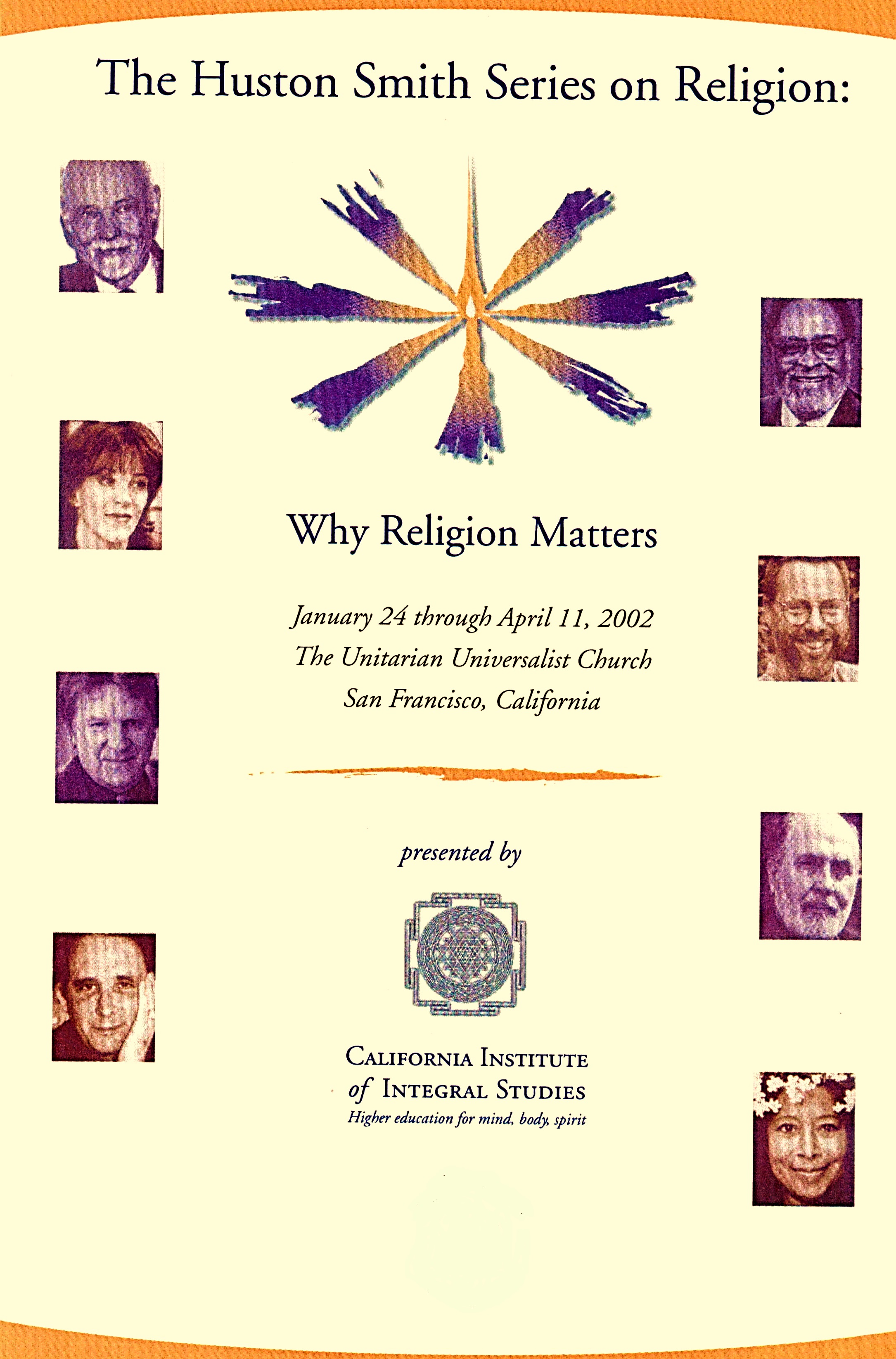
Huston Smith Lecture Series
Document Type
Audio File
Publication Date
2002
Abstract
This lecture is part of the Huston Smith Lecture Series on Religion sponsored by the California Institute of Integral Studies, honoring the life and work of Huston Smith, the internationally known authority on world religions. The lecture series was held at the Unitarian Universalist Church in San Francisco, California, from January 24 through April 11, 2002.
Recommended Citation
Walker, Alice M., "Healing the Universal Heart: Becoming Intimate with that which is Foreign" (2002). Huston Smith Lecture Series. 8.
https://digitalcommons.ciis.edu/huston-smith-lectures/8



Comments
Alice M. Walker is an American novelist, short story writer, poet, and activist. She wrote the critically acclaimed novel The Color Purple (1982) for which she won the National Book Award and the Pulitzer Prize for Fiction. She also wrote Meridian and The Third Life of Grange Copeland, among other works. The author of short stories and novels, essays and poetry and activist for racial civil rights, women’s equality and peace among other causes, Alice Walker brought black women’s lives into primary focus as a rich and important subject for US American literature. Her landmark novel The Color Purple, which drew upon her sharecropper family’s Southern roots, made Walker famous the world over and brought her the first Pulitzer Prize for fiction awarded to an African American woman. It shows how an abused young woman evolves through the help of other women and her own inner strength to throw off the shackles of male oppression to find love and affirmation within herself and in the arms of another woman. Walker’s introduction of the concept of “womanism” was an influential corrective to the focus on white women understood by many under the term “feminism;” it helped broaden the women’s movement to include women of color and appreciate their traditional cultural and creative roles. Walker has also been instrumental in rediscovering and promoting other Black women writers, past and present, most notably Zora Neale Hurston (1901-1960), whose work she edited and interpreted.